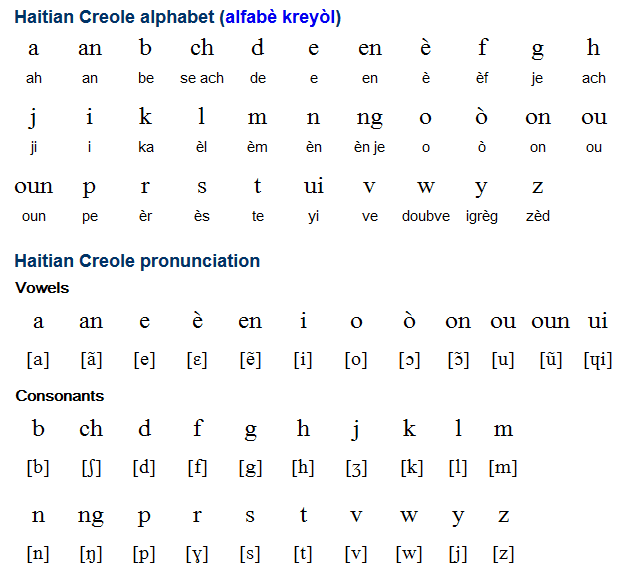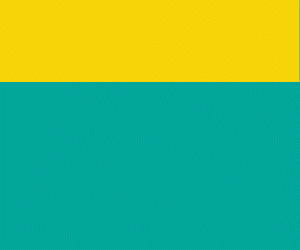There are two official languages spoken in Haiti, which are French and Haitian Creole. Both languages were established in the region after French settlers established a colony on the western portion of Hispaniola island called Saint-Domingue. This colony would eventually go on to become Haiti after the African slaves rebelled against their French captors and fought for independence.
Because of the French influence over the region from the 16th century to the 18th century, the Haitians adapted to the French language. As for Haitian Creole, it is a French-based creole language with most of its vocabulary inspired by 18th century French. Haitian Creole has also been influenced by West African languages, English, Taino, Spanish, and Portuguese.
Taino, of course, was the original civilization of people that existed on Hispaniola island before the first European settlers came along and enslaved them into extinction. But some of their spoken and written language was left behind and picked up to some extent by the African slaves who were later brought to the island.
The true birth of Haitian Creole happened on the Haitian sugarcane plantations. It was a way for African slaves to communicate with the French colonists who held them captive. It was not spoken in the standard French dialect of that time period, though. The heavy influence of African words and terms are prevalent in Haitian Creole.
A modern French speaker might understand some Haitian Creole, but the diversity in the grammar and vocabulary make it a distinct language from traditional French. It is estimated that between 10 and 12 million people in the world speak Haitian Creole. Most of those people live in Haiti because that is about the population of Haiti.
There are Haitian immigrants who have moved to other countries and still speak Haitian Creole. The difference is those immigrants also speak other languages to adapt to the country they are living in, whether it be English in the United States or French in France. Haitian Creole is the most popular creole language in the world at the moment, as per Creole Tutors. No other community of Caribbean people speaks a creole language more widespread than the Haitian people.
French vs. Haitian Creole
French is only spoken by roughly 9% of the total Haitian population. Even though French is one of the two official languages of Haiti, most Haitians only learn Haitian Creole. A Haitian who understands French is considered to be upper-class. It is a skill that could land them a job overseas in France, which will get them out of poverty for sure.
Big Haitian cities like Port-au-Prince contain Haitian schools where French is taught to students. Before the 21st century, the teachers at Haitian elementary schools would use French to speak to students, even though it was a second language to them. Most of the Haitian presidents throughout history have spoken French to their people as well. Anyone who spoke Creole was considered uneducated and poor.
Those policies changed in the 21st century. Haitian presidents and elementary schools have started speaking Haitian Creole more often to accommodate a wider range of students, such as the poorer students who don’t know French very well. Besides, French is still a language that reminds Haitians of the French colonialism that enslaved their ancestors. That is another reason why they prefer to speak Haitian Creole rather than French.
But still, French offers Haitians the ability to communicate with a greater number of people in the world. It allows them to read and hear mass-produced media content, such as newspapers and television programming. Since Haitian Creole has at least three different dialects, it is difficult for newspapers and television programming to be produced in a dialect that all Haitians will understand. This makes French such a valuable skill to have.
The three dialects of Haitian Creole are the Northern Dialect, Central Dialect, and Southern Dialect. The most popular is the Central Dialect, which is spoken in the capital city of Port-au-Prince. The Northern Dialect is most widely used in the second biggest city of Haiti, which is Cap-Haitien. As for the Southern Dialect, it is used in a popular southern Haitian city called Cayes.
Grammar
Haitian Creole does not place any particular person or tense on its verbs. It also doesn’t place gender roles on its nouns and pronouns. That is what primarily makes it different than French and English. However, the word order of a Haitian Creole sentence is the same as it is in those two languages. You start with the subject followed by the verb and then finished with an object.
Six pronouns exist in Haitian Creole. They are the singular and plural forms of first, second and third person. These pronouns are all derived from the old French language. Direct and indirect objects make no difference whatsoever. Singular and plural possessive pronouns also exist too.
Official Language Status
It took until 1961 for Haitian Creole to be declared an official language of Haiti. Between 1804 and 1961, the only official language of the country was French. But that didn’t mean Haitians weren’t speaking Haitian Creole already because they were. It was really an underground language spoken outside of the urban environments. French has continued to be the dominating language of the country, despite the Haiti’s resentment against France.



